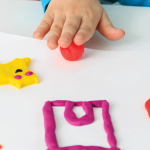
07 Feb The Value Of Volunteering
Giving of one’s free time reaps rewards for everyone concerned, writes Lucinda Bertram.
As Australians, we pride ourselves on our generous nature. While in some countries volunteer fire-fighters and lifeguards are unheard of, the situation in Australia proves that money doesn’t need to be a motivator. In the research Voluntary Work, Australia, released by the Australian Bureau of Statistics (ABS) in 2010, the picture looks healthy, with 36 per cent of the adult population volunteering their time. Parents in couple relationships and with dependent children aged 5-17 years had the highest rate of participation in voluntary work (55 per cent).
So, it seems that many parents who are busy raising families and working full-time to pay mortgages and school fees are also the ones raising their hands to take on a little bit more.
Volunteers are the backbone of many school and sporting programs
On the surface, everything appears rosy in the nation where we all like to lend a hand. But do we really all like to lend a hand? While 36 per cent of people answer ‘yes’, the other 64 per cent are unaccounted for. Many schools and organisations face problems in recruiting volunteers, and a volunteer who signs up for two hours may get lumped with 10 hours because nobody else turns up to relieve them.
Some programs have been cancelled due to lack of volunteers. The walking-school-bus program run by the City of Kingston in Melbourne’s south was cancelled in many primary schools last year. Heralded as a brilliant initiative, the program involved an adult supervisor walking with a group of students to school along a set route. Difficulty in recruiting and retaining volunteer supervisors was a major reason for the decline in its success.
Volunteers are the backbone of many school and sporting programs. Simon Cook, CEO of Little Athletics Australia, says, “Without volunteers, the Little Athletics program simply wouldn’t be possible. Parents are needed to supervise each event and without them it couldn’t happen.”
When we picture a volunteer, we might imagine those emergency-services crews pulling tarpaulins over a damaged roof in the middle of the night, or searching for lost bushwalkers in rugged terrain. However, the ABS reports that the organisations to which people most commonly volunteer are schools and sports clubs. In reality, volunteers are rarely seen abseiling down a cliff to rescue a fallen hiker; the majority are doing the more mundane, but just as vital, work of fundraising and preparing food.
Melissa Polson, mother of seven-year-old Kobe, and part-time swimming coach and volunteering enthusiast, is a regular sight at her son’s primary school. Happy to help at the canteen, with fundraising, as a teacher’s assistant and on excursions, Melissa estimates that on average she volunteers about three to eight hours a week. Her volunteer workload increases around the time of the school’s big fundraising fair, during which time she works in excess of 15 hours. “I enjoy volunteering immensely, but I find trying to get other people to help out particularly frustrating,” explains Melissa. “The fundraising committee spend all year preparing for Family Fun Day and we ask other parents to volunteer their time for half an hour on a stall, and it’s really hard to fill the rosters. We start out asking so politely, and then, when we don’t get enough of a response, we have to turn the pressure on. It’s the part of volunteering I enjoy the least. It would be lovely if everyone was keen to do a just a small bit. It’s all the small bits
that make big things possible.”

The reasons people don’t get involved are varied and personal. They may be working full-time, or volunteering elsewhere; they may have sick parents or small toddlers to look after; they may have health issues; their spouse may be the one who volunteers; or they may feel shy.
Lisa Jones has been on preschool committees, the manager of her children’s sports teams, and fundraising coordinator for different community groups, but this year she’s taking a break from volunteering. Having just given birth to her fourth child, Lisa believes that she’s entitled to say no for the moment. “Volunteering requires a commitment and you are not doing anyone a favour if you put your hand up for a job and then can’t follow through. You have to be realistic about your capabilities. Nobody’s going to stop you from volunteering, so you have to be the judge of your own situation.” Lisa’s philosophy is that sometimes you’re the volunteer and sometimes you benefit from other people volunteering. “I’ve done my bit, and no doubt I’ll do a bit more in the future, but just not now,” says Lisa.
“The most common reason that people can’t help is that they are already too busy,” says Paula Decarli. Paula and her husband John Zeccola are both committed volunteers. Paula has run the fundraising committee at their sons’ school for several years, while John is on the school council, the residents’ committee and helps out at soccer. Since they began volunteering their time to the community more than a decade ago, Paula and John have never had someone tell them that they can’t help out because they’re too lazy or that they want to watch television. They initially laugh at the suggestion and then admit that in some cases it is probably true – “although, I think most people are genuinely busy,” says Paula. “There are so many activities that people can be involved in and that require volunteers. It’s not just the school. Children are often in several extracurricular activities that require parent helpers, and then parents also have their own work and other interests to consider.” John also suggests that sometimes people don’t have the passion for it so therefore aren’t motivated. “They know someone else will do it if they don’t and they just don’t care enough about it.”
Many organisations put a lot of time and effort into creating an environment that encourages volunteers. Little Athletics promotes volunteering to parents as ‘the best seat in the house’. “And so it is,” says Simon Cook. “You can see your child and their friends in action and can be a part of encouraging and assisting them. We always start our volunteers out with simple jobs like collecting the shot-puts, and as they become comfortable, we provide them with training to take over more-skilled positions.” As an incentive to get involved, Little Athletics Queensland also charges a parent levy, which parents who volunteer will get back after they have fulfilled a certain amount of duties. “This system is fair and suits working professionals,” says Cook. “Parents who are too busy to help at sessions or on the committee know they have made their contribution to the centre in a financial way instead.”
Most people’s main reason for volunteering is to help out others and do something worthwhile
The ABS reports that almost two-thirds of those who volunteer do so as a result of being asked by someone or because they knew someone involved. Paula Decarli confirms that this is often the case. Most of her hard-working fundraising team are in place because she personally asked them to be involved. John says, “It’s easy to ignore a piece of paper asking for help; it’s a lot harder to say no to someone face to face.”
You might think that Paula, John and Melissa would begrudge the hours they spend volunteering when other parents are not prepared to do the same. This is not the case at all. Although they do admit to being frustrated, tired or stressed at times, they aren’t going to stop any time soon. “It’s so worth it,” enthuses Melissa. “Being involved at the school has been a marvellous experience. I recently helped on an excursion to an animal sanctuary and the look of excitement and fascination on my son’s face was priceless. These are beautiful memories. It’s also a great way to develop a good relationship with your children’s teacher and this has great benefits for your child. I have learnt so much about the job teachers do. I admire them so much and if I can do a few tasks for them so they can get back to the important job of teaching the students, then I am happy.”
Paula and John affirm that the sense of satisfaction is worth the effort and time spent along the way. John explains, “We both find volunteering so rewarding and satisfying. It’s great to know that you’ve made a positive and tangible change in the lives of not just your family, but other families in the community as well.” He adds, “If you want to see improvements, then get involved and be a part of the change. It’s no good complaining if you aren’t prepared to help make things better.”
Although most people’s main reason for volunteering is to help out others and do something worthwhile, Melissa points out that there are many benefits along the way. “I’ve made some wonderful friends. You seem to have an instant rapport with other volunteers as you are all there for a common goal.”
Attitude and perspective are big factors in whether or not a person will volunteer. What one person sees as a reason not to volunteer, another person gives as the reason they joined in. One mum looking for work doesn’t want to commit to anything in case she gets a job interview, while another thinks volunteering will be a bonus on her résumé. One family might not come to a working bee because they feel they need more time together, while another family sees the working bee as a great day to spend time doing something worthwhile as a family. At last year’s fundraising fair for her sons’ school, Paula tells how she spotted a mother of a small baby coming in with a pram full of cakes for the cake stall. “I thought that was a great example for others. Obviously, she would have difficulty manning a stall, so she found another way to contribute. If you want to help out then you will find a way.”
We want to be good examples of how to be valuable community members
Volunteering is often a family tradition. More than half of volunteers (66 per cent) in the Voluntary Work, Australia survey reported that at least one of their parents had done voluntary work, compared to 44 per cent per cent whose parents had not volunteered. This is good news to Paula and John. Paula says, “I want our children to know they must give and not just take. Sometimes my children have to wait while I’m making phone calls to organise an event. I think it’s an important lesson for them to learn that life isn’t all about them and that we all need to give back. We want to be good examples of how to be valuable community members. If they sometimes have to wait a bit longer or miss out on my attention for a short time, they are learning that the world doesn’t revolve around them.”
Paula and John believe they have the right balance of volunteer commitment, partly due to the fact that they support each other in their various endeavours. “I certainly couldn’t volunteer as much as I do if John wasn’t prepared to pick up the slack around the house when I’m particularly busy. It’s a family commitment. Sometimes things become hard to juggle and then we need to prioritise. I think we manage to get it right most of the time,” says Paula.
“If you can volunteer and don’t, then you are missing out,” claims Melissa. “Whatever my work commitments, I will always find a way to volunteer some of my time. I’d encourage everyone who is able to to get involved and see what new doors it opens for you. This year our committee has raised more than $25,000*. It’s exciting to know you’ve played a role in a big achievement like that.” Melissa is philosophical about her struggle to recruit volunteers. “If I can’t find the volunteers for the fun day and have to go straight from the popcorn stand to the fairy-floss stand, then so be it. But it would be great if those rosters just filled up magically!”
Paula, John and Melissa and the other Australians who volunteer would love others to climb on board the volunteer train. Not so that they can hop off, but so that they can take a seat once in a while.
*Originally published in 2009 with ABS statistics updated as at 2010.
Illustrations by Gregory Baldwin
See Organisations such as Volunteering Australia for organisations needing volunteers




